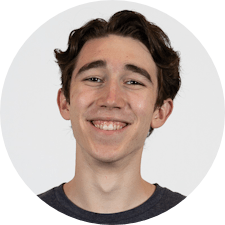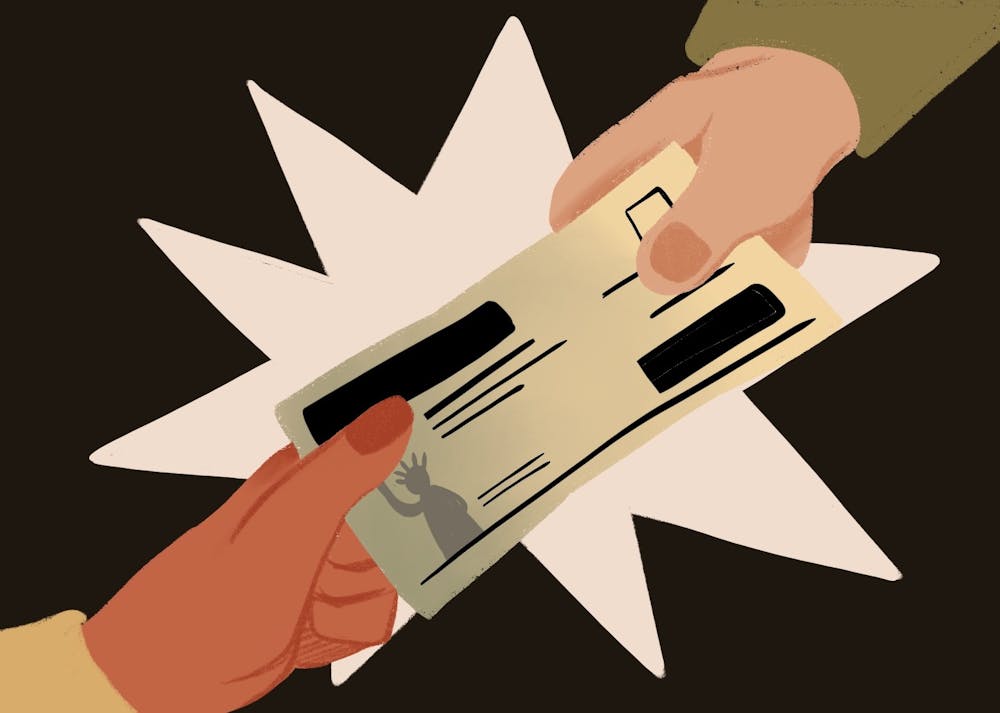Student entrepreneurs are using funds to send mosquito net repair kits to Africa, develop an app to help people with food allergies and produce phone cases that can help homeless people after winning the money at Open Pitch.
Open Pitch was hosted by the J. Orin Edson Entrepreneurship + Innovation Institute over Zoom from Sept. 20 to 24, offering a relaxed, informal environment for students to pitch their ideas before a crowd.
Winners of the Open Pitch event in September received $250 to move their ideas forward. Nearly each Open Pitch session announced a different winner, with one pitch session resulting in two winners awarded, making for a total of five winners.
Students are given two minutes to pitch their ideas. Once everyone has presented, each person on the Zoom call gets to vote once for their favorite ideas, tallying up to the winners of nearly every session of the day.
Learning how to pitch an idea is an important skill to help students in other facets of life, such as job interviews and team building. But building the skill can be nerve-wracking.
Bailey Gading, the program coordinator for Student Outreach and Engagement at the University, said in an email she hopes the "relatively informal setting" of the event "takes away some of the fear and pressure that people often experience."
Despite the courage students showed at the event, only a handful of them were winners. The following winners plan to use their newly acquired funding to further their individual projects.
Ben VollerBrown is patching holes in mosquito nets
Ben VollerBrown, a junior majoring in mechanical engineering, is working to fix the problem of torn mosquito nets, an issue plaguing the continent of Africa.
In several countries, people receive mosquito nets through NGOs and the U.N. to help protect them from the diseases the pests can carry, like yellow fever virus and West Nile virus.
However, these mosquito nets tear. A study found that over a two-year period, 96% of mosquito nets distributed to select households in Ethiopia had holes in them.
VollerBrown's solution is to provide a mosquito net repair kit to people in need, and he has already sent 1,000 kits to a Ugandan non-profit in order to collect data on the repair kits' utility, VollerBrown said.
The kits come with a three-step instruction manual in Luganda, a native language in Uganda, showing how to sew the patches into broken nets "and it's actually so easy that children were able to patch holes in their nets in less than ten minutes," VollerBrown said.
Through Youth Rising Uganda, an organization helping educate young Ugandans through youth centers, VollerBrown was able to take a trip to Uganda last summer. VollerBrown explored the country and tested his product.
"They really wanted to immerse us in the culture, so they took us around to different cultural sites … We would give them kits, teach them how to use it, get their feedback, all that fun jazz," VollerBrown said.
Six months ago, VollerBrown and his business partner were accepted into Clinton Global Initiative University, an organization founded by former President Bill Clinton to provide skill training to college students. Through a connection via a mentor from the program, Vollerbrown was connected with U.N. grassroots campaign, Nothing But Nets, which was interested in purchasing 300,000 kits, VollerBrown said.
Tristan Tierce wants to launch an app to help people with food allergies
Tristan Tierce, a sophomore majoring in art studies and business entrepreneurship, has food allergies which present problems when he wants to travel. Last summer, Tierce thought about the challenges he would face if he went on a trip to Italy with friends.
"How am I going to go in this situation (and) actually be able to eat food, because it's not like I can take a week's worth of food with me on a plane across the world," Tierce said. "That's when I started realizing there was not a lot of support" for people with food allergies.
About 32 million people in the U.S. have food allergies, according to the Asthma and Allergy Foundation of America.
Tierce has eosinophilic esophagitis, a condition that causes his throat to swell up when exposed to certain foods like dairy and tree nuts. Tierce has to carry an EpiPen to stay safe.
Due to his condition and the challenges he has faced when trying to travel, Tierce is developing an app called Worldwide Waffles. The app will be "a global concierge service" capable of helping people with food allergies navigate their travel plans by showing menus and different allergens that could be present from restaurants in foreign countries, Tierce said.
In the future, Worldwide Waffles users could find help by hiring someone from the service to assist in planning the dining experience of their vacation based on the user's dietary preferences, Tierce said. He is working on a prototype for the app and is trying to find someone to work on the app's coding.
Jackson Schiefelbein wants to change the world one phone case at a time
Phone cases keep people's most valuable technology safe, but could they be the solution to the pressing problems of plastic pollution and homelessness?
Jackson Schiefelbein, a senior majoring in sustainability and global studies, hopes to develop a simple process which allows for phone cases to be made from recycled plastic. He also hopes to employ Arizona's homeless population for this company.
Phone cases are part of a lucrative market. OtterBox, a business founded in the late '90s that makes water-resistant phone cases, is worth $2.5 billion, according to Smart Cents.
His future company, NuCase, will create phone cases by melting down littered plastics and molding them into armor for phones. Schiefelbein believes his phone cases will be more environmentally friendly than other sustainable phone cases because "it's an entirely zero-waste process, and you're not taking any new raw materials from the world," Schiefelbein said.
NuCase would work with local homeless shelters to help people without homes learn new skills and earn a form of income, according to Schiefelbein. Arizona ranks 12th in the nation for homelessness by population, according to Phoenix Rescue Mission.
Open Pitch was the first time Schiefelbein pitched his NuCase idea, and he believes to make a successful pitch, the most important thing a student can do is form a connection with their audience. He also said it was important that business goals have a deeper mission than just financial gain.
"Even if it's just a personal connection, being able to make it seem like it is something more important than making money. That's also my values in business is that it's not responsible to not make it have a bigger social mission," Schiefelbein said.
Reach the reporter at kryback1@asu.edu and follow @KadenRyback on Twitter.
Like The State Press on Facebook and follow @statepress on Twitter.
Continue supporting student journalism and donate to The State Press today.

Kaden is a reporter for the Biztech desk, focusing on student run business, people profiles and research papers. During his time at The State Press, Kaden's biggest piece was about ASU's history with NASA. He's a sophomore majoring in Journalism and Mass Communication.




